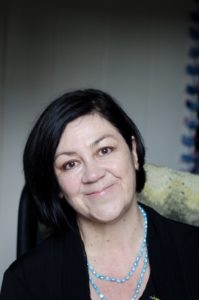Professor Debra Jackson (PhD(Ng/Midwif) ’00) received a Flinders University Distinguished Alumni Award for her significant contribution internationally in her chosen field of nursing and in particular for her leadership in nursing and allied health research.
Professor Jackson is the Director of Oxford Institute of Nursing, Midwifery and Allied Health Research. She was the first Professor of Nursing to be appointed at Oxford in 25 years and has gone on to establish the Oxford Institute of Nursing and Allied Health Research as the Professor of Nursing at Oxford Brookes University and Oxford Hospitals NHS Foundation Trust.
Her research achievements include publication of more than 300 articles which have attracted more than 8,000 citations, along with attracting more than $6 million in external funding from government and industry sources.

Interview with Debra Jackson
You are the only Professor of Nursing in Oxford and the first for 25 years. What was the path that took you to Oxford?
Oxford has an amazingly generative academic environment; world-leading clinical facilities and the research infrastructure is truly phenomenal. All those factors, plus the unique opportunity to realise a vision for the development of a world-leading centre for nursing, midwifery and allied health research were what brought me here.
You have had a distinguished career as a research leader. Have there been any highlights or milestones?
There have been so many wonderful moments in my career. But to select only a couple, one was being the only nurse named as a Principal Fellow of the NIHR-funded Oxford Biomedical Research Centre (2016-2019). This award reflects significant and sustained contribution to internationally excellent translational clinical research that has created a positive impact on patients. And then there is being named a Distinguished Alumni of Flinders University, which is also a great honour.
Your research output has been enormous but you seem to get as much satisfaction from mentoring others.
Being able to work with gifted and talented nurses, to help them to get the skills to uncover the knowledge that will result in improvements to patient care is a great privilege and one of the best things about my job. There is nothing more worthwhile than walking alongside bright young people as they develop and mature in their thinking, and in their ability to clearly articulate their thoughts and ideas.
When did you decide that Nursing was the career for you?
My favourite aunt was a nurse. I admired her greatly. She always had interesting things to tell me about nursing and I thought it was a career that would suit me well. Forty-plus years on, I have absolutely no regrets. Nursing was and is a wonderful career.
Nursing has changed greatly in recent years. Do you see that continuing? What of the future?
Nursing is a dynamic profession that is flexible and adaptable to the needs of patients, families and communities. So, I think there will be continued development and role expansion. I think nurses will be working alongside a greater range of providers at the point of care.
You completed your PhD at Flinders in 2000. What memories do you have of your time at the University?
I have great memories of my time on campus. We used to have doctoral schools that were really wonderful, not only for our learning, but for helping to form a sense of connectedness with the university community and getting to know the other students. I want to acknowledge my supervisor, Prof Philip Darbyshire who was very inspiring and motivating. He taught me a lot about supervision that I have been able to carry forward into my own career.

